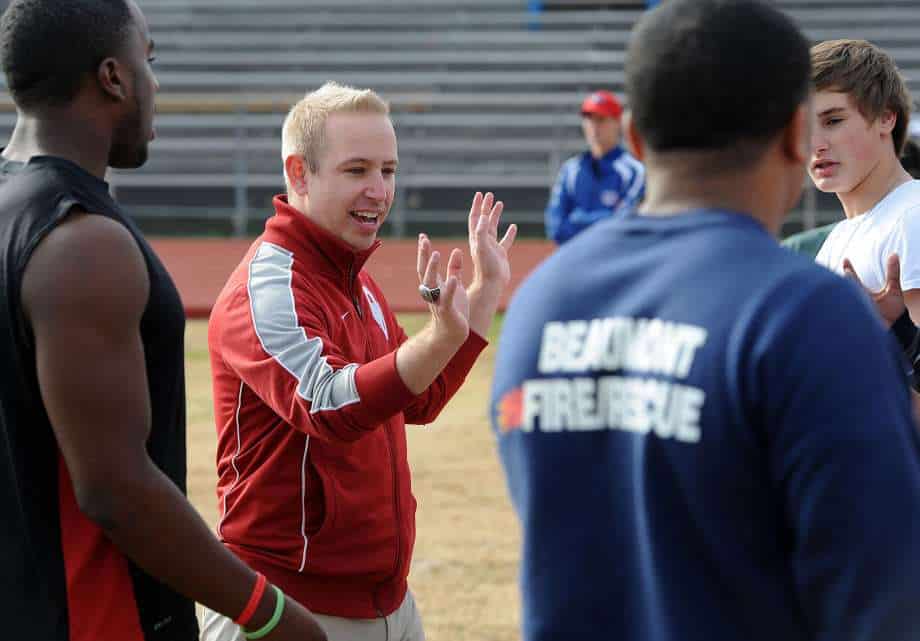Table of Contents

The fields of business and sports psychology are building alliances. It seems sports psychologists might have some knowledge and practices that are well suited to the business and corporate world. This trend began to gain momentum over the past decade and is continuing to grow.
Traditionally, sports psychologists worked primarily with athletes and athletic performance. However, some sports psychologists have been transferring their knowledge of competition and mental focus concepts to the area of “business sports psychology”. A good example is looking at the work of Timothy Gallwey, who wrote The Inner Game of Work in 2001. This book has received recognition for the melding of mental tools to the world of work and is still popular today. It has some of the same concepts one might read in the Inner Game of Tennis.
Contrary to mainstream beliefs, sport psychology principles and practices are not only used to enhance motivation. In fact, other important elements include developing effective team and communication strategies, knowing one’s role on the team, and planning how best to execute short-term and long-term goals. These concepts are important in both industries of sport and business.
Businesses also use sport as an analogy to show the rivalry in the corporate world. This is why many sports psychologists have broadened out of their typical sports settings and moved into the money-making corporate consulting practice world.
*This post may contain affiliate links. As an Amazon Associate we earn from qualifying purchases.
Business Sports Psychology – Where to Apply It?

Given how competitive and results driven the business world is, the potential for crossover is quite obvious. And this is because both domains have common characteristics. Graham Jones wrote a great article on these commonalities, Performance Excellence: A Personal Perspective on the Link Between Sport and Business (Journal of Applied Sports Psychology).
Some of the crossover domains include:
- Performance Environments
- Leadership styles
- High stress
- Goal setting
- Role players
- Effective Teams
- Competition
- Confidence concerns

Teaching Business Clients To Focus and Develop Mental Tools
Using examples of the sporting world in the corporate life helps to provide insight into the challenges faced by a business executive. If the business person feels like she can relate to an athlete who has to perform in a harsh environment, it might be smart for her to start developing those must-have capacities to achieve full potential in high-stress environments, such as focus, attention to a plan, and building stamina for the big game. That’s why we often hear of the term “corporate athlete”, popularized by Loehr and Schwartz (2001).
With the help of sports psychology business consultants, executives might better understand that self-doubt comes with pressure situations, that it’s part of how things work in trying to achieve excellence. Sports champions have worked very hard to reach a high level of psychological strength. Promoting this fact may help business owners to show patience in the face of adversity. It’s more about long-term development, mental and emotional stamina and knowing results might take time. And, it’s about knowing how to coach employees and staff to gain those sills.
One huge goal in both business and sports is to help individuals accept what cannot be changed and control what can be modified. In business sport consulting, an important part of the job is to identify and strengthen what can be controlled. This means putting time into those things that can be personally managed, such as emotions, concentration, and activation levels. Getting clear on what is controllable really helps increase focus and not waste time on what cannot be controlled. The key is about stretching capacities and not just minimizing the problems.
Applying a Performance Psychology Model in The Business World
Some specific, key skills to help corporate employees learn are listed below. These are the same skills many high performing athletes use to achieve success.
1. Focus
A key concept is that improved performance, whether in the corporate or athletic area, is gained by knowing where to put one’s focus. Basically, we’re talking about the skill of concentration. It’s the ability to target what’s relevant and focus on the task and not be sidetracked by events or people who detract from the goals. Yet, there is also a sense of flexibility and being able to shift focus if the business “game” conditions change.
If your focus drifts to what others think or about your competition, you risk making mistakes and losing your focus on the primary goals. This distraction can be associated with bad decisions or being sidelined in events that really do not matter.
One way many business people lose their focus is through multitasking. Although many of us are pushed into multi-tasking and one can be proud of such ability, it is not always the most productive behavior. Always keep an eye on the task at hand, just as champions focus on that one play, to avoid disrupting performance. Multi-tasking can be the enemy of high performance in some business settings, similar to some sports settings. It would be like a golfer trying to manage other golfers, thinking about all the upcoming holes and overall score rather than focusing on each shot. Do you see the difference?
Just as in sports, take one item at a time when performing an important task. Overthinking leads to increased anxiety, which ultimately leads to poor focus.
2. Commitment
The high performance begins with a personal choice of succeeding. It is completely within our control. What sets apart achievers from the rest is that they are willing and determined to win. No matter how challenging the goals, they put in effort and commitment in order to achieve their goals. This means making all the necessary sacrifices. These people move beyond “hoping” things work and making a plan to make things work.
Athletes, for example, give 100 percent effort when targeting excellent results. Businesses need to understand that the same commitment has to be applied to work.
The challenge with this is knowing how to keep some work-life balance as well. Similar to an athlete the basics of health matter. This means keeping a healthy diet, working on physical fitness and continuing with mental and emotional development. High performance is only achieved by individuals who take the time to recover and rest. Athletes burn out because they skip the basics and sometimes forget about other aspects of their lives. So high commitment to a task does not have to mean lack of life balance.
3. Mental readiness
Mental readiness means identifying the best mindset for a certain task. Top performers usually have self-regulation strategies to turn to when they need to manage critical situations. These strategies often involve knowing when to get more pumped and when to be more calm and relaxed.
Executives can learn about techniques to help change emotional and mental readiness. For example, when stress is high it can be extremely helpful to indulge in a few minutes of detachment every hour or when you feel the need. You can even exercise a little, or go outside for some fresh air, or do some short breathing or mindfulness techniques. Athletes use these tools a lot.
4. Coping with Setbacks
Setbacks happen for many reasons. Top performers are well prepared to deal with them and know setbacks are part of success. When setbacks happen to use these simple rules:
- Understand what occurred and do a review
- Accept what happened rather than fixate on it
- Plan a response and create controllable action steps
- Implement that response
Managing setbacks also means developing the ability to refocus once you got off track. In business sports psychology, this might means establishing contingency plans or working or altering a plan.
5. Ongoing learning
Ongoing learning is essential to performance. Learning always includes making changes after setbacks. But learning also means finding new methods to improve performance, studying successful people, and taking time for ongoing educations.
In the competitive work environment, feedback is also part of learning. Good coaches know who best to deliver messages and the corporate world can learn much from observing successful coaches. But remember, coaches, learn from their athletes as well. so corporate leaders need to know learning moves in both directions.
Final Thoughts
Given how close sport and business psychology ideas match across environments, the attention given to integrating the two is in no way surprising. Sport psychology principles may offer a great resource to business executives who want to help people and businesses perform at optimal levels.
IMAGE SOURCE: 1, 2, 3
